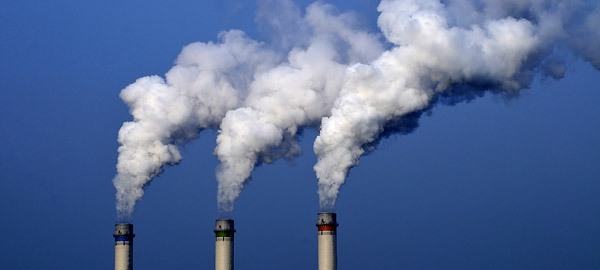In a recent interview, retired Navy Rear Admiral David Titley explained that climate change impacts were a threat to national security [1]. The threat of war is just one more in a long list of climate change horrors that scientists and activists say will occur by the end of the century—that list includes economic meltdown, drought, and food shortage. All of these will disproportionately affect marginalized demographics [2].
As a twenty-four year old environmentalist who has already dedicated half of his life to addressing climate change, I belong to the generation whom politicians often speak of. I belong to the generation who will suffer the consequences of climate change. I belong to that future group of youth from whom our parents borrow the earth. And the idea that my retirement holds none of the promises that most insurance brokers advertise is at worst devastating, and at best daunting.
I was trained as an engineer, and engineers are, in the most literal sense, problem-solvers. When faced with something daunting, we are taught to diagnose the problem, evaluate its boundaries, measure its parameters, develop a solution and apply it.
So when environmentalists such as James Hansen [3], Vandana Shiva [4], and Al Gore [5] sounded the climate alarm around the world, the manner in which the world responded would be considered standard by any engineer: we evaluated the problem via the IPCC; we measured its parameters; we developed targets to reduce emissions and provided a timeline in which to accomplish the goal.
That was in 1997 [6]. Today, we are well beyond Bill McKibben’s 350 parts-per-million limit [7,8] for disastrous climate change, Naomi Klein and others are still ringing the climate alarm, and if COP19 is any indication, we are no closer to averting disaster than we were when I was in the 4th grade [9].
Climate skeptics will look at the data and claim that the IPCC misled the public, that political inertia is actually indicative of people waking up to leftist conspiracy. But the data is not to blame here [10]. Every possible indicator suggests that without doubt, whatever the ecological Cassandras have predicted is actually going to happen. In fact, ever since Gallup started asking the question, more than 60% of Americans believe that global warming is real and its effects will be felt in their lifetime [11].
So why, despite the overwhelming sense of urgency, are we getting nowhere in addressing climate change?
The possible reasons are numerous, and I assert that only one really answers the question.
Paradoxically, between 1989 and 2014, the fraction of Americans who believe that climate change is an issue of immediate concern has remained static at a dismal 33 percent [13]. Pragmatists point to student debt, terrorism and other issues as taking precedence, understandably relegating the impending doom of our species to second place. Realists say the intense politicization of the topic has turned much of the populace away. The technocrats will say that resources that could replace oil or coal are not yet available.
I argue that the reason has a lot more to do with environmentalists than we might think, and maybe a little less to do with politicians, scientists or the general public.
Climate change is, at its essence, not an issue of scientific research or technology. The training I received as an engineer is not nearly as relevant here as we might think. We should never confuse our ability to measure environmental impacts with scientific tools as evidence that this is an issue for scientists to resolve.
Climate change is a social and policy problem; it is a problem of how we view nature and the assumptions that influence that view. As Rear Adm. Titley pointed out in his interview with Slate:
Climate change isn’t just an environmental issue; it’s a technology, water, food, energy, population issue. None of this happens in a vacuum. [1]
And the reason why we are getting nowhere in climate change policy is because we environmentalists use (and as a result the media uses), unwittingly, the two most ineffective motivators for social reform: fear and shame.
What do you think? We’ll have more to share soon
References
[2] http://www.ipcc.ch/report/ar5/wg2/
[3] http://www.nytimes.com/1988/06/24/us/global-warming-has-begun-expert-tells-senate.html
[4] http://www.hindu.com/2006/05/09/stories/2006050911171200.htm
[5] http://climaterealityproject.org/
[6] http://unfccc.int/resource/docs/convkp/kpeng.pdf
[7] http://www.washingtonpost.com/wp-dyn/content/article/2007/12/27/AR2007122701942.html
[8] http://www.esrl.noaa.gov/gmd/ccgg/trends/
[9] http://www.iisd.org/sites/default/files/pdf/2013/gathering_in_the_gloom.pdf
[10] Maibach, E., Myers, T. and Leiserowitz, A. 2014. Earth’s Future. Accepted Article doi: 10.1002/eft2. 2013EF000226
[11] http://www.gallup.com/poll/168236/americans-show-low-levels-concern-global-warming.aspx


Charles Eisenstein has written a piece on this subject that I think you may appreciate. The “Fear of a Living Planet”. Find it at Kosmos.